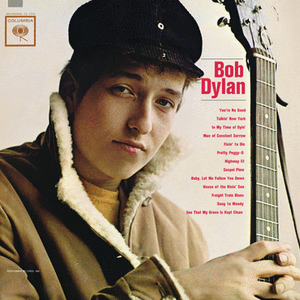Related Research Articles

Arlo Davy Guthrie is a retired American folk singer-songwriter. He is known for singing songs of protest against social injustice, and storytelling while performing songs, following the tradition of his father Woody Guthrie. Guthrie's best-known work is his debut piece, "Alice's Restaurant Massacree", a satirical talking blues song about 18 minutes in length that has since become a Thanksgiving anthem. His only top-40 hit was a cover of Steve Goodman's "City of New Orleans". His song "Massachusetts" was named the official folk song of the state, in which he has lived most of his adult life. Guthrie has also made several acting appearances. He is the father of four children, who have also had careers as musicians.

Woodrow Wilson Guthrie was an American singer-songwriter and one of the most significant figures in American folk music. His work focused on themes of American socialism and anti-fascism. His music includes songs such as "This Land Is Your Land", written in response to the American exceptionalist song "God Bless America", and has inspired several generations both politically and musically.

Jonatha Brooke is an American folk rock singer-songwriter and guitarist from Massachusetts, United States. Her music merges elements of folk, rock and pop, often with poignant lyrics and complex harmonies. She has been a performer, writer, and artist since the late 1980s, and her songs have been used in television shows and movies.

"Roll On, Columbia, Roll On" is an American folk song written in 1941 by American folk singer Woody Guthrie, who popularized the song through his own recording of it. The song glamorized the harnessing of the Columbia River in the Pacific Northwest. The 11 hydroelectric dams built on the American stretch of the Columbia helped farms and industry, but their construction also permanently altered the character of the river.

Bob Dylan is the debut studio album by American singer-songwriter Bob Dylan, released on March 19, 1962 by Columbia Records. The album was produced by Columbia talent scout John H. Hammond, who had earlier signed Dylan to the label, a decision which was at the time controversial. The album primarily features folk standards, but also includes two original compositions, "Talkin' New York" and "Song to Woody". The latter was an ode to Woody Guthrie, a major influence in Dylan's early career.
"Alice's Restaurant Massacree", commonly known as "Alice's Restaurant", is a satirical talking blues song by singer-songwriter Arlo Guthrie, released as the title track to his 1967 debut album Alice's Restaurant. The song is a deadpan protest against the Vietnam War draft, in the form of a comically exaggerated but largely true story from Guthrie's own life: he is arrested and convicted of dumping trash illegally, which later endangers his suitability for the military draft. The title refers to a restaurant owned by one of Guthrie's friends; although she is a minor character in the story, the restaurant plays no role in it aside from being the subject of the chorus.

"This Land Is Your Land" is one of the United States' most famous folk songs. Its lyrics were written by American folk singer Woody Guthrie in 1940 in critical response to Irving Berlin's "God Bless America", with melody based on a Carter Family tune called "When the World's on Fire". When Guthrie was tired of hearing Kate Smith sing "God Bless America" on the radio in the late 1930s, he sarcastically called his song "God Blessed America for Me" before renaming it "This Land Is Your Land".

Ramblin' Jack Elliott is an American folk singer.
Charlie King is an American folk singer and activist.

Ellis Paul is an American singer-songwriter and folk musician. Born in Presque Isle, Aroostook County, Maine, Paul is a key figure in what has become known as the Boston school of songwriting, a literate, provocative, and urbanely romantic folk-pop style that helped ignite the folk revival of the 1990s. His pop music songs have appeared in movies and on television, bridging the gap between the modern folk sound and the populist traditions of Woody Guthrie and Pete Seeger.

"All Hail to Massachusetts", with words and music by Arthur James Marsh, was made the official state song of Massachusetts on September 3, 1966, and codified by an act of the General Court in 1966. The song, written originally in the Spring of 1954 by Marsh, a Wellesley music teacher who intended to make it an official anthem, was first performed on August 15, 1954, at the bandstand of Paragon Park, Nantasket Beach in Hull. Following three previous attempts by the legislature to designate a state song in 1958, 1961, and 1964, the song was selected as the state song in June 1966. The final commission which picked the tune was chaired by Arthur Fiedler, conductor of the Boston Pops, along with Erich Leinsdorf, with the support of fellow Boston Pops musicians Harry Ellis Dickson and Leo Litwin, and Peter Siragusa, then-director of music for Boston Public Schools. The commission's legislators were state senator James A. Kelly Jr., as well as representatives David M. Bartley and John M. Melia. With its enactment as the state song, it entered the public domain, with the act including a "properly executed transfer of the copyright to said song to the commonwealth."
"Oklahoma Hills" is a song written by Woody Guthrie. In 2001 it was named the official Folk Song of the state of Oklahoma.
Massachusetts is a state in the northeastern United States.
Lee Hays was an American folksinger and songwriter, best known for singing bass with the Weavers. Throughout his life, he was concerned with overcoming racism, inequality, and violence in society. He wrote or cowrote "Wasn't That a Time?", "If I Had a Hammer", and "Kisses Sweeter than Wine", which became Weavers' staples. He also familiarized audiences with songs of the 1930s labor movement, such as "We Shall Not Be Moved".
"Song to Woody" was written by American singer-songwriter Bob Dylan and released on his debut album, Bob Dylan, in 1962. The song conveys Dylan's appreciation of American folk legend Woody Guthrie. The song is one of two original compositions featured on Dylan's debut album. Dylan also rehearsed the song in a country arrangement during sessions for Self Portrait on May 1, 1970, as heard on the 2021 compilation album 1970.

The American folk music revival began during the 1940s and peaked in popularity in the mid-1960s. Its roots went earlier, and performers like Josh White, Burl Ives, Woody Guthrie, Lead Belly, Big Bill Broonzy, Billie Holiday, Richard Dyer-Bennet, Oscar Brand, Jean Ritchie, John Jacob Niles, Susan Reed, Paul Robeson, Bessie Smith, Ma Rainey and Cisco Houston had enjoyed a limited general popularity in the 1930s and 1940s. The revival brought forward styles of American folk music that had in earlier times contributed to the development of country and western, blues, jazz, and rock and roll music.

The Woody Guthrie Folk Festival is held annually in mid-July to commemorate the life and music of Woody Guthrie. The festival is held on the weekend closest to July 14 - the date of Guthrie's birth - in Guthrie's hometown of Okemah, Oklahoma. Daytime main stage performances are held indoors at the Brick Street Cafe and the Crystal Theatre. Evening main stage performances are held outdoors at the Pastures of Plenty. The festival is planned and implemented annually by the Woody Guthrie Coalition, a non-profit corporation, whose goal is simply to ensure Guthrie's musical legacy. The event is made possible in part from a grant from the Oklahoma Arts Council. Mary Jo Guthrie Edgmon, Woody Guthrie's younger sister, is the festival's perennial guest of honor.

Contemporary folk music refers to a wide variety of genres that emerged in the mid 20th century and afterwards which were associated with traditional folk music. Starting in the mid-20th century a new form of popular folk music evolved from traditional folk music. This process and period is called the (second) folk revival and reached a zenith in the 1960s. The most common name for this new form of music is also "folk music", but is often called "contemporary folk music" or "folk revival music" to make the distinction. The transition was somewhat centered in the US and is also called the American folk music revival. Fusion genres such as folk rock and others also evolved within this phenomenon. While contemporary folk music is a genre generally distinct from traditional folk music, it often shares the same English name, performers and venues as traditional folk music; even individual songs may be a blend of the two.
"Ain't Got No Home" is a song by Woody Guthrie, released on Dust Bowl Ballads, in which the singer laments the difficulties that life presents him. It was based on a gospel song Guthrie heard on his visits to the migrant camps known variously as "Can't Feel at Home" or "I Don't Feel at Home in This World Anymore," which had been made popular by the Carter Family in 1931.
Roll on Columbia: Woody Guthrie and the Columbia River Songs is a 2011 documentary film concerning Woody Guthrie's music created for Columbia River projects, especially "Roll On, Columbia, Roll On". It premiered at McMenamin's Pub in Troutdale, Oregon. In the documentary, oral historian Michael O'Rourke is interviewed about Guthrie's month of songwriting in Oregon and Washington. O'Rourke also produced the film. The film was spawned from a radio documentary that O'Rourke did for Oregon Public Broadcasting.
References
- ↑ "Massachusetts Fun Facts", Commonwealth of Massachusetts. Accessed 20 June 2014.